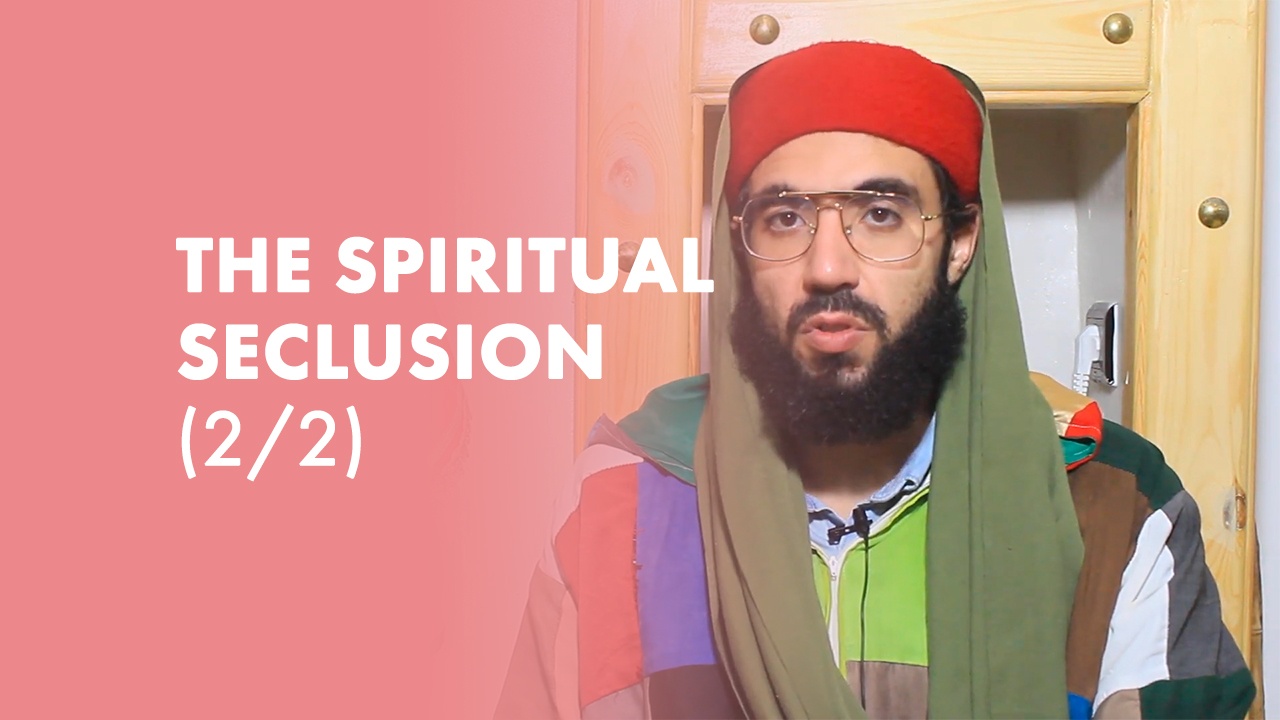بسم الله الرحمن الرحيم
و الصلاة و السلام على أشرف المرسلين
و على اله و اصحابه أجمعين
“Those who follow the Messenger, the Prophet Oummi whom they find mentioned in their home in the Torah and the Gospel. He commands them to the right, defends the blameworthy, makes them lawful of good things, forbids the evil ones, and robs them of the burden and the yokes that were upon them. Those who believe in him will magnify him, support him, help him, and follow the Light that has come down with him: these will be the winners.” [1].
Al-Bukhâriy reports in his Sahîh:
“I once met ‘Abdullah ibn’ Amr ibn al-‘As (radiAllahu ‘anhu) and said to him: “Inform me about the characteristics of the Messenger of Allâh ﷺ which is mentioned in the Torah. He said, “Of course. By Allah, it is described in the Torah with some of the characteristics that describe it in the Qur’an. O Prophet, We have sent you as a witness, a preacher of the good news and warning, as a refuge for the illiterate (oummi): you are My servant and My Messenger, and I called you al-Mutawakkil. He is neither rude nor rude, nor of those who scream and quarrel in the markets. He does not respond to evil by evil, but rather he forgives and is indulgent. Allaah will not recall Him to Him until religion has been made right by the fact that people say “lahdha illa Allah,” and that by this word he opened our blind eyes, Our deaf ears and our veiled hearts.” [2].
And one can read in al-bahr al-madid:
“In the account of the conversion of Ka’b al-Ahbar, who was a Yemenite, he related that his father was one of the Torah people who believed in the Messenger of Allah ﷺ even before he was aroused. He says:
My father was one of the greatest scholars of the Torah and the Books of the Prophets. He hid nothing from what he knew, and when death was near he called me to him and said, “My son, you know that I never concealed from you what I knew, though There are two leaves I have deprived you of and which evoke the next provocation of a Prophet. His appearance is imminent, and I did not wish to tell you, and fearing for you that you will follow one of those liars who will not fail to manifest, I have ripped off these two pages of my book , And I placed them in this slot that you see there, and that I refill with clay. Do not open it until this Prophet appears! When it is revealed, follow it and read the two leaves. By them Allah will add to His benefits. “
When my father died, nothing was more dear to me than the fact that his funeral ended so that I could see these two leaves, and I could read this:
“Muhammad is the Messenger of Allâh ﷺ and the seal of the Prophets, no Prophet after him. He is born in Mecca and the place of his exile is good. He is neither rude, nor of those who scream and quarrel in the markets. He does not respond to evil by evil, but rather by good. He forgives and indulges. His community are Hammadūn, people who praise Allah for all grace and in all circumstances. Their tongues move by the takbir, and Allah will support their Prophet against any person taking him as an enemy. They wash their sex with water, help each other and help each other. Their gospels are in their breasts, they eat of what they sacrifice and trade. Their mercy to one another is such as that of a mother and a father to their son. On the Day of Judgment, they are the first of the communities to enter Paradise, they are the predecessors and the close ones, they are the intercessors and beneficiaries of intercession.” [3].
The quintessence of the verse:
Follow his Enlightenment, springing from his noble Crystal, which is so subtle that what appears is none other than the very thing that remains hidden from it. Praising him, True attributed to him the degree of the Supreme Meeting and said in these words: “Those who swear allegiance to you will swear allegiance to Allah: the hand of Allah is above their hands .” [4].
That is to say:
follow his Enlightenment and access the flavors of vision (mouchâhada), revel in Proximity and the Union. Then you will be rid of the embrace of the veils covering your hearts, after having multiplied efforts without access to the vision, or after you are dedicated to acts of worship without profiting from it. It is in this world that he will make you taste the fruit of the accomplished works. He will reveal to you the veils that constitute the considerations other than Him, or of duality, and this simply through the easiest and tiniest of adorations.
I swear by my life that these are the signs of the heir Shaykh, the one who will win the Union in less than a nod, the one who will lift the sails of your heart by the simple fact that you Swear allegiance to him, without the least pain or fatigue, all thanks to the strength of his enlightenment and the eminence of his Secret. He will give you a Light from the Torch of Prophecy, revealed through Holiness. You will taste the contemplative vision (mouchahada), drink at the river of Love, gain the key of the vault of the Divine Attributes, abounding with subtle visions and elevations in spiritual degrees … and You will be saved from the illusions of the world around you.
As for the so-called Shouyoûkh of this time, they command you to practice such dhikr a thousand times, and another thousand thousand … without any result happening concretely in the heart. Then he asks: “Did you feel anything?” Have you made a pious dream?
We do not deny that the people of effort by the acts of worship will receive a reward for their works, and we do not question the spiritual value of the dream, for as Hadith tells us it is On the one hand, among the forty-six parts of the Prophecy. This only calls into question one of the Shari’a’s deniers … but what have we done with another forty-five?
I simply reply that these forty-five other degrees are the different degrees of the mouchahada, the contemplative vision in the state of awakening.
This verse brings together for the journey the degrees of Proximity, effort and propriety:
- First: follow-up. One does not follow the one who contravenes the Law of Beloved. How could one pretend to Proximity the one who is filled with illicit? It is, on the contrary, the fire of divine remoteness which belongs to him in priority.
He said ﷺ: “O people, Allah is Good and He only accepts what is good. And Allah hath indeed commanded the believers that which He hath commanded the Messengers. He said, “O Messengers, eat what is good for you and practice pious works: I am perfectly knowledgeable of what you do. And He said, “O you who have faith, eat of the good things that We have given you.”
Then he evoked the case of the traveler whose journey was prolonged, disheveled and dusty, he stretched out his hands to heaven: “O Lord! O Lord!”… while his food is illicit, his drink is illicit, his clothes are illicit and his provisions are illegal: how would he be answered?” [5]. - Second, faith in the intermediate (Wasita), a deep and unshakeable faith, so that no more doubts remain in his heart.
- Thirdly: to revere (ta’zir), to sublimate (tawqir) and to magnify (ta’dhim) the intermediary.
- Fourth: Support and support through one’s possessions, oneself, one’s family and one’s children. On this subject we find in an authentic Hadith admitted: “We were with the Prophet ﷺ, and he held by the hand ‘Omar ibn al-Khattab, who addressed him: “O Messenger of Allah, More expensive than anything in the world, except myself. The Prophet then answered him, “No, by Him who holds my soul in His hand, until I am more dear to you than yourself!”. ‘Umar then said to him: “Now by Allah you are dearer to me than I am.”” The Prophet ﷺ said, “Now O Omar …” [6].
- Fifth: the follow-up of the Tawhid Moon Light. In fact, the Prophet ﷺ says: “You will certainly see your Lord, in the same way that you see this moon, without it being difficult for you …” [7].
And this is the sign indicating the Heir, so that he who follows his Light, which is none other than the torch of Prophecy, will become a support of Truth through Truth. He will then rid himself of the coercion of distance and the chains of the finite world, which are only the artifacts of the nafs and the shaytan … and he will accede to the contemplation of the Merciful through the Light of the Beloved.
[1] Surat al-An’am, verses 122-125.
[2] Sahih al-Bukhâriy, No. 1991.
[3] Al-bahr al-madid fi tafsir al-Qor’an al-majid – Ibn ‘Ajiba – Volume 2, page 402.
[4] Surat al-Fath, verse 10.
[5] Sahih Muslim.
[6] Sahih al-Bukhâriy.
[7] Sahih al-Bukhâriy, Hadîth No. 523.



